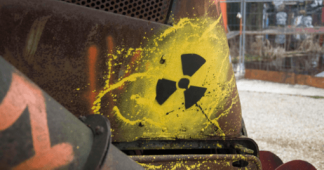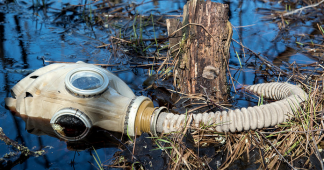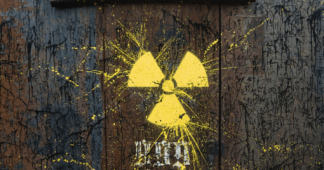9 Jun, 2018
More than 30 years after its catastrophic meltdown, the Chernobyl nuclear power plant is being blamed for high radiation levels discovered in local cow’s milk.
Sampling milk from private farms in the Ukraine’s Rivne region, scientists from Exeter University and the National University of Life and Environmental Sciences made a startling find – radioactive material from more than three decades ago has leached into the livestock.
The lingering nuclear fallout from 1986 means farmers are unwittingly producing milk with radioactive caesium levels above the Ukraine safety standard of 100 becquerel per litre. The becquerel is a unit of radioactivity, with the new report documenting how some farms had milk with a radioactivity concentration of around 500 becquerel per litre.
One of the researchers, Dr Iryna Labunska, of the University of Exeter, believes the issue warrants government intervention. She said that while soil contamination in the Rivne region is not particularly high, the milk study shows how nuclear accidents have a long lasting legacy.
“More than 30 years after the Chernobyl disaster, people are still routinely exposed to radioactive caesium when consuming locally produced staple foods, including milk, in Chernobyl-affected areas of Ukraine,” said Dr Labunska, of Greenpeace Research Laboratories at the University of Exeter.
On April 25, 1986, the reactor core at Chernobyl nuclear power plant near the now desolate town of Pripyat went into meltdown. Considered to be one of the worst nuclear accidents in history, Chernobyl’s radioactive exposure could end up claiming the lives of up to 4,000 people through various diseases, according to the World Health Organisation.
The area surrounding the former power plant is not expected to be habitable again from another 150 to 300 years.
“Many people in the area we studied keep cows for milk, and children are the main consumers of that milk. Government and international monitoring needs to take place, along with help for people affected by this radiation,” Dr Labunska added.
“Without adequate countermeasures, what may now seem a purely historical event will remain a daily reality for those communities impacted.”
Published at https://www.rt.com/news/429279-ukraine-radioactive-chernobyl-milk/











